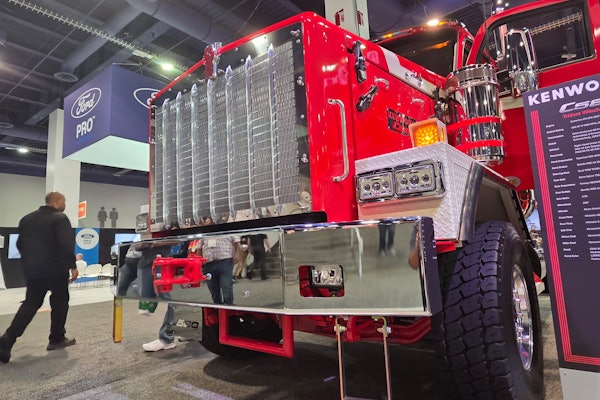Roger Schultz was taking a walk with his wife when he suddenly felt pressure in his chest. The Minnesota trucker tried to continue his walk, but he didn’t have the strength. Schultz feared he was having a heart attack.
But Schultz was lucky. He went to his doctor immediately after that fearful event two years ago. His heart problems were treated before they got out of hand. Shultz’s physician, Dr. Tom Kottke, professor of medicine and cardiologist at the Mayo Clinic in Rochester, Minn., said the driver had all the signs that precede a heart attack.
“The two major signs of a heart attack are chest pain and shortness of breath,” Kottke says. “The chest pain will frequently radiate up into the neck or shoulders and particularly down the left arm.”
According to the American Heart Association, most heart attacks involve discomfort in the center of the chest that lasts more than a few minutes or that goes away and comes back. It can feel like uncomfortable pressure, squeezing, fullness or pain. Other signs of a heart attack include pain or discomfort in the back, neck, jaws or stomach, breaking out in a cold sweat, or feelings of nausea or lightheadedness.
Kottke discovered that Schultz had a blockage in his coronary arteries, and he was diagnosed with coronary heart disease, the No. 1 killer of Americans.

Schultz immediately changed his eating habits to prevent any further complications.
According to Kottke, “60 to 80 percent of all heart attacks are avoidable.”
His tips are simple. “Don’t smoke or go into a place where people are smoking,” he says. “Eat lots of fruits and vegetables and foods low in animal fats.”
Kottke says he knows it can be difficult for truck drivers to maintain a healthy diet because of their lifestyle, but he also knows it can be done. Schultz, he says, is proof of that.
“I had to change my diet completely,” says Shultz, a company driver for Poly Trucking in Cottage Grove, Minn. “I eat a lot of vegetables. Truckstops seem to serve big platters of food. I have to watch my intake, and I always go to the salad bars first.”
He also brings food from home. “Breakfast is one of the worst as far as cholesterol,” Schultz says. So he brings oat bran cold cereal on the road in summer and warm oatmeal in the winter.
Schultz says he also makes sure he has a variety of healthy foods available, because if he gets bored with eating right he’ll be tempted to eat the wrong things.
He believes that boredom also contributes to other unhealthy habits.
“Many truck drivers smoke just because they’re bored,” says Schultz, who stopped smoking in 1980. Instead of smoking or snacking on junk food, Schultz listens to audiotapes to entertain himself. When he does crave a snack, Schultz munches on apples that he brings from home.
Schultz also exercises while he’s on the road.
“I do deep knee bends in my truck,” he says. “It helps my back, and it gets my heart rate going.” For more physical activity, he goes to rest stops to walk.
Kottke says Schultz is an example of a driver who is not using the routines of trucking as an excuse for an unhealthy lifestyle.
“The bottom line is no one is looking out for anybody,” Kottke says. “You have to look out for yourself. No one is going to stand there and say ‘Don’t eat those chips or don’t eat that cheeseburger.’ I know it’s hard to eat right and exercise while on the road, but it can be done.”
Don’t Hesitate – Call 9-1-1
What should you do if you, or someone you’re with, has chest discomfort and one or more of the other signs of a heart attack?
Source: American Heart Association
www.americanheart.org
What About Cardiac Arrest?
Cardiac arrest strikes immediately and without warning. Here are the signs:
If cardiac arrest occurs, call 9-1-1 and begin CPR immediately. If an automated external defibrillator is available and someone trained to use it is nearby, ask that person for help.
Source: American Heart Association
www.americanheart.org





